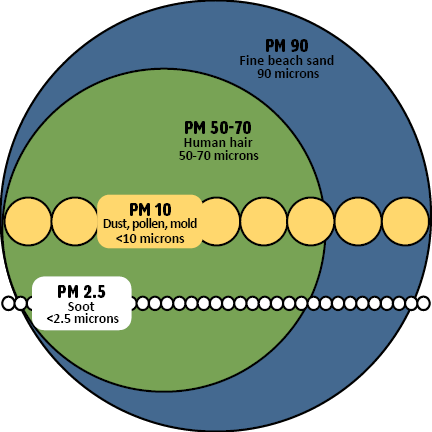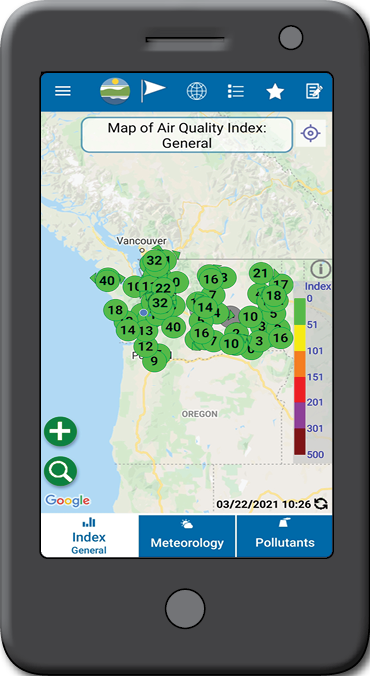
Breathing clean air is important for everyone. Air quality agencies across the country are highlighting “Air Quality Awareness Week” to help residents learn about air pollution and how to protect their health.
What is air pollution?
Air pollution is the release of toxic chemicals or compounds in the air that are detrimental to human and environmental health. Most air pollution comes from energy use and production. Burning fossil fuels releases gases and chemicals that not only contributes to climate change, but is also exacerbated by it, raising the Earth’s average temperature even more.
In 1970, the Clean Air Act authorized the Environmental Protection Agency (EPA) to set National Ambient Air Quality Standards (NAAQS) for six common air pollutants:
- Carbon monoxide (CO)
- Lead (Pb)
- Nitrogen dioxide (NO2)
- Ozone (O3)
- Particulate matter (PM)
- Sulfur dioxide (SO2)
The most common pollutant Ecology and local clean air agencies monitor is particulate matter (PM). It is a mixture of tiny solids or liquid droplets made up of smoke, soot, dirt, and dust floating in the air. These tiny particles can harm your health when inhaled. PM mostly comes from wood stoves, outdoor burning, wildfires, blowing dust, and vehicle and industry emissions. You can track air quality in your area on the AirNow website or download the Air Quality WA app from the Google Play Store or Apple App store.
Protecting your health
There is a significant connection between air pollution, respiratory illness, and premature death. Everyone can be affected by air pollution, but people in sensitive groups are particularly vulnerable to poor air quality conditions.
Sensitive groups include:
- The elderly
- Children
- Pregnant people
- Those with cardiovascular diseases
- People with respiratory illnesses
- People with other underlying health conditions
Symptoms of exposure to smoke or unhealthy levels of air pollution include:
- Eye, nose, and throat irritation
- Shortness of breath, asthma attack, or lung irritation
- Nausea
- Headaches
- Watery or dry eyes
- Persistent cough, phlegm, wheezing, scratchy throat, or irritated sinuses
- Irregular heartbeat, chest pain, or fatigue
- Nonfatal and fatal heart attacks
For relief from your symptoms:
- For itchy eyes, you can use over-the-counter artificial tear drops
- For a scratchy throat, drink plenty of water and run a humidifier
- For a headache, take an over-the-counter pain reliever
- Wear an N95 mask if you are outdoors
- Drink plenty of water
- Replace your vehicle's cabin air filter
- Replace the HEPA filter in your home ventilation system
- Limit your time spent outdoors and keep your windows closed
- If you’re in a sensitive group and your symptoms are severe, consider leaving the area and contacting your doctor
- Make your own clean air fan.
Español https://youtu.be/paDqiIZUECw
한국어 https://youtu.be/zqlWd8-74CU
Tiếng Việt https://youtu.be/8HXcbVfTdwQ
Climate Commitment Act
Low-income communities, communities of color, and indigenous people in Washington and across the country often bear the brunt of air pollution and the impacts of climate change.
In 2021, the Washington Legislature passed the Climate Commitment Act (CCA) to reduce carbon pollution and achieve new greenhouse gas limits set in state law. Environmental justice is at the center of related policies to ensure cleaner, healthier air reaches these disproportionately impacted communities in the future.
You can learn more about how we’re working to expand air quality monitoring in overburdened communities on our website.



